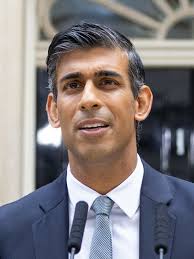
by David Fellows
This commentary suggests that the UK Government’s new Prime Minister, Rishi Sunak, should use this pre-election year to pursue a much-needed process of public engagement embracing honest analysis, realistic objectives and meaningful initial progress focused resolutely on the key issues.
Politicians can spend too much time stabbing at simple solutions to complex problems. This typifies the Opposition’s current behaviour resulting in frequent policy reversals or ‘clarifications’ but they are not alone. PM Sunak has just announced a substantial increase in medical training throughput but has given little analysis of current difficulties demonstrating how this single initiative will make a critical difference to the NHS.
A risky but more beneficial strategy would be to explain how he truly sees the UK’s key problems and opportunities, explaining their origins and his commitment to beneficial change within a realistic timescale. He would be open to engagement on refinement and priorities but he would emphasise his intention to move forward at speed within the limited time at his disposal before the general election. This would demonstrate intent, practicality and, wherever possible, some evidence of initial impact. The latter prospect is particularly valuable as it is an option that is only available to Government. It is conceded that such an approach would be highly demanding and allow some admission of past policy deficiencies.
The benefits would be three-fold. Firstly, Sunak has had limited opportunity to develop a rapport with the country and this would be an arresting start. Secondly, it would employ his key strengths of analysis, practicality, honesty in debate, ability to communicate in depth and he would be seen to credit ordinary people with the intelligence to understand hard issues. Thirdly, the Opposition would be challenged to meet him on his own terms or be seen as shallow and incapable of the grip required to make serious improvements.
Sunak is sufficiently different from both his two immediate predecessors that this more open, practical and carefully reasoned approach could signal the arrival of a new Government capable of making a critical difference at speed. Ideally, he would be joined by a small team of ministers that would share this style of presentation and help develop the thinking on the issues to be presented in this way. A more collegiate style would also signal a welcome robustness of relationships within Government.
I have already set out my views on the key issues: economic growth (with the Government more ready to accept a pivotal role in levelling-up); green energy; housing and families; the structure, character and management of the civil service; and NHS reform. I accept that I must add immigration in its various forms. But mission creep must be avoided. This must not become the manifesto. It should be far more focused on the things that matter most.
When explaining why we are where we are and what we now need to do to deliver future success it is essential that the context is properly explained to the electorate. To me this breaks down as follows:
- The need to foster improved economic productivity and growth through innovation, leadership, education and training, leading to good job opportunities, self-sustaining communities in all regions and affordable public services. This includes addressing the UK’s current dependency on immigration to provide the necessary additional labour to compensate for the failure to produce sufficient home-grown talent or achieve adequate productivity improvements throughout the economy.
- The need to reign-in public spending and restore the public-private sector balance of the economy through greater public service efficiency and a much-reduced dependency on regulation. A key requirement of the latter being the creation of clear distinctions between public and personal responsibilities, a challenging task.
- The relationship between housing availability, family prosperity, general living conditions, birthrate and public service provision.
- The need to supplement renewable energy with carbon-based fuels for sufficient time to allow for the discovery and development of viable zero-carbon solutions that current technology is at present unable to provide on an industrial scale. This includes revisiting issues provisionally resolved by bogus zero-carbon solutions. Clearly current carbon emission deadlines must therefore be extended to avoid the economic and social disasters that will otherwise arise from current timescales.
- The need to identify the extent of NHS failings has already been referred to. In doing this, the dual public-private system that is already an integral part of UK health service provision must be officially acknowledged and developed in a coherent and cost-effective manner.
- The need to review the nature of the civil service given the dependency of Government on trust between elected and appointed officials. Specifically, to consider the continued validity of the expectation that senior officials will remain personally loyal to all ministers they serve, will advise them dispassionately and will be prepared to action the policies that are then determined by successive politicians. A change of party is the most obvious but not the only issue here.
These complex situations affect highly relevant issues requiring an elevated level of explanation and engagement. Sunak is equipped to rise to these demands.
The core narrative of the next Government could be introduced and developed in some depth from now onwards. The proposed approach carries the promise of a more profound relationship between Government and Country, rejecting hollow sound bites as a route to electoral success.
The five priorities may have been a starting point but the country needs a more substantial vision that does justice to the challenges that lie ahead.
David Fellows worked extensively in UK local government, was a leader in the use of digital communication in UK public service and became President of the Society of Municipal Treasurers. He was subsequently an advisor on local government reform in the UK Cabinet Office and an international advisor to the South African National Treasury. He is a director of PFMConnect, a public financial management consultancy, and a regular commentator on public financial management issues at home and abroad.


